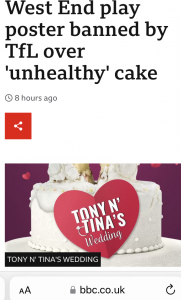
 The latest seminar in our Bioethics Seminar Series will be presented by Professor Martin Wilkinson from UoA! Reach out to bioethics@otago.ac.nz for details regarding viewing online/in-person. Abstract below:
The latest seminar in our Bioethics Seminar Series will be presented by Professor Martin Wilkinson from UoA! Reach out to bioethics@otago.ac.nz for details regarding viewing online/in-person. Abstract below:Nanny states treat adults like children, they get too worked up about supposed threats to health and safety, and they like being controlling. Many of us do not want what Angela Ince, a UK columnist, called ‘the whole irritating, complacent, smug, Nanny-knows-best, eat-up-your-nice-spinach-or-your-hair-won’t-curl of today’s Nanny State.’ But many of us want to be healthy rather than ill, and alive rather than dead.
Does a state really nanny us when it uses its power to make us healthier? If it does, should it stop? Is it wrong to tax cigarettes heavily, sugar lightly, and alcohol in the middle? Should the density of fast-food outlets be reduced? Should advertising campaigns make smokers feel dirty or guilty?
This talk is about the nanny state criticism of public health. Public health advocates dismiss this criticism as dishonest, or incoherent, or doctrinaire, but I say the nanny state criticism should be taken seriously. I bring out three strands within it:
‘Healthism’: the nanny state gives too much weight to the value of health
Autonomy: adults should be free to run their own lives so the state should not impose health on people
‘Scepticism’: doubts that the state or public health practitioners know what they are doing or else, if they do know, that they can be trusted to do it.
Sinister corporate interests and extreme libertarians are among those who complain about the ‘nanny state’. Even so, as we shall see, they often have a point.

